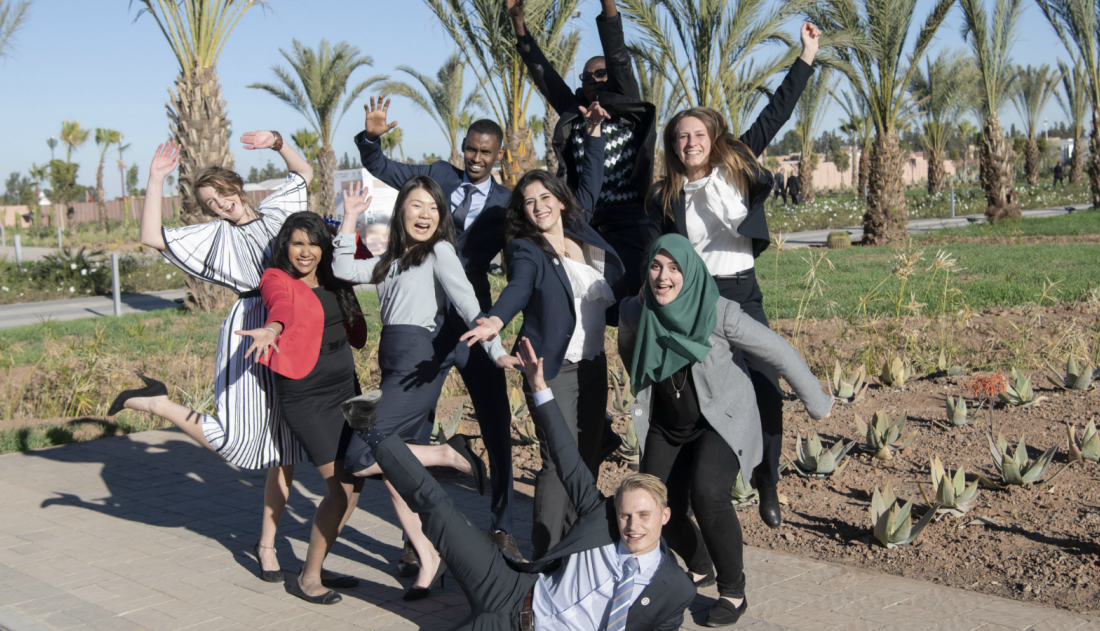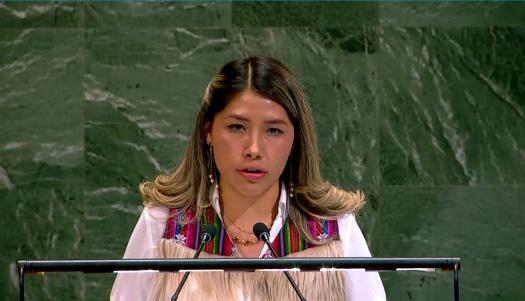
In a world where climate change wreaks havoc on our economies, societies and environment, where unemployment and inequalities are rampant and where trust in international cooperation is falling, what can keep us from losing faith that the world 2030 will be a better place for everyone? UN DESA’s World Youth Report offers one good reason for optimism: the next generation is different.
“We have come here to let [world leaders] know that change is coming whether they like it or not,” was probably the most quoted sentence coming from the recent COP 24 climate conference. It was not uttered by the UN Secretary-General nor by any of the Heads of State and Government, but by a 15-year-old from Sweden, Greta Thunberg, who had sparked a powerful global movement of school strikes for climate action.
Her words are representative of the attitudes of today’s young generation. A recent study, conducted in 15 countries worldwide, found that globally, young people are more optimistic about the future than older generations. Despite facing much higher unemployment rates, more instability and lower wages than their predecessors, today’s youth are entering adulthood confident that they can build a better future for themselves and for those that follow.
Case studies from all corners of the world, gathered by the World Youth Report, seem to justify young people’s optimism. From a youth movement driving climate action across the Arab region to an organization expanding digital literacy among young people in rural Philippines, to a global youth network for sexual and reproductive rights, young people everywhere are indeed stepping in where previous generations have failed.
“The latest UN DESA’s World Youth Report is clear: Young people have the potential to save the world. All we have to do is let them do just that,” said Assistant Secretary-General at UN DESA and UN Chief Economist Elliott Harris. “And that means giving them a fair shot at quality education and decent jobs.”
Sadly, today’s young generation continues to be left behind when it comes to education and employment. According to the World Youth Report, one in four people of secondary-school age are not enrolled in a school and less than half of all young people are participating in the labour market. And even among those that do have a job, one in six live in extreme poverty.
These numbers are more than mere statistics – they stand for squandered potential of millions of people whose capabilities and enthusiasm could have greatly accelerated our progress towards the Sustainable Development Goals.
Ensuring access to inclusive, quality education is essential for young people’s chances of finding decent work. Quality primary and secondary education are not enough. They should be complemented by affordable technical, vocational and tertiary education that provides youth with relevant skills for employment and entrepreneurship.
If we do want a better future in the year 2030, we have to urgently invest in those who will create it.
For more information: World Youth Report
Source: UNDESA Voice
 Welcome to the United Nations
Welcome to the United Nations


